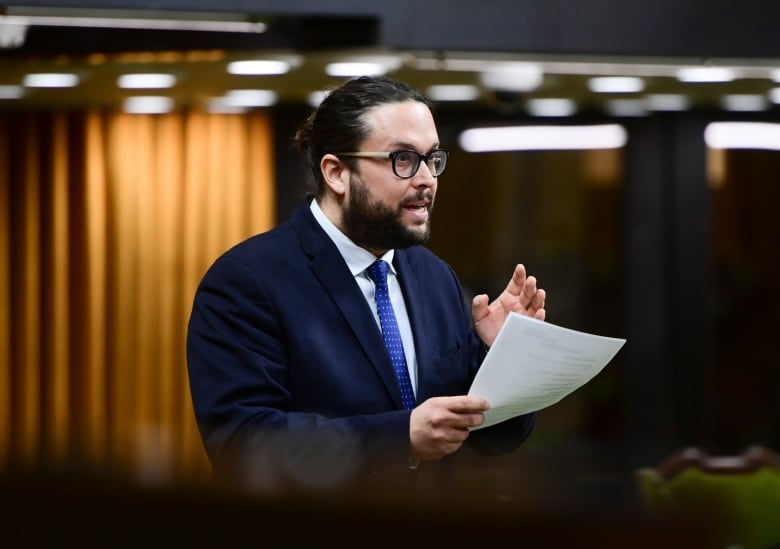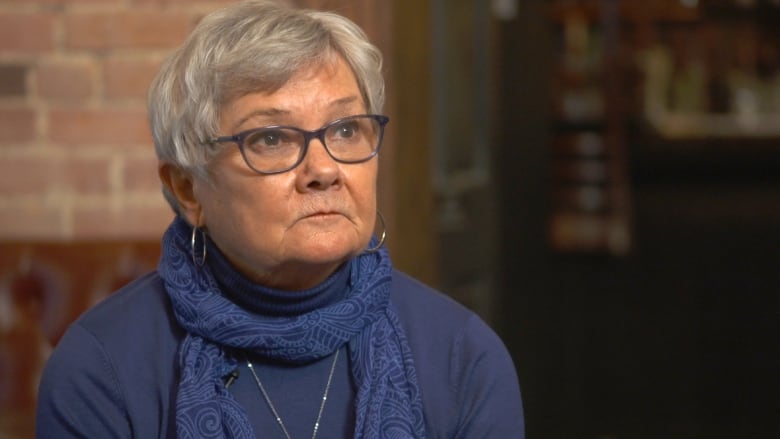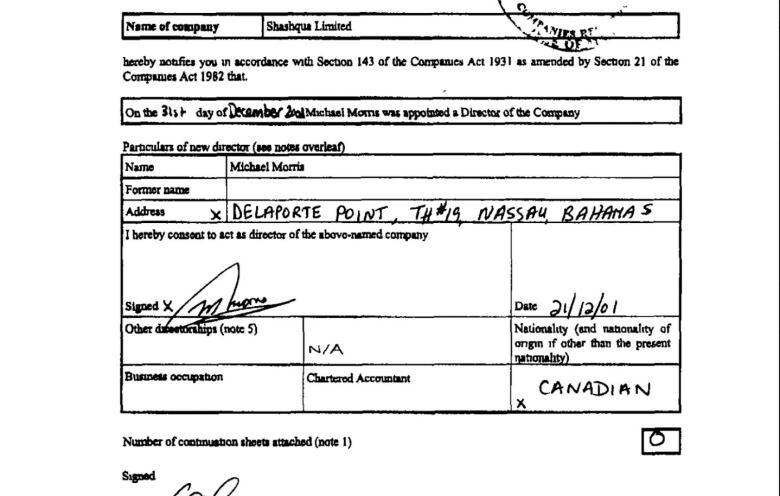MPs braced for battle with global accounting firm over naming wealthy Canadians behind offshore tax shelters
MP tells fraud victim 'we are not going to give up' on offshore probe

For years, ultra-wealthy Canadians — aided by high-priced accounting and tax law firms — have been setting up offshore shell companies in the Isle of Man so they can dodge taxes back home, avoid paying future creditors (such as ex-spouses) and hide their identities.
Now, MPs on the House of Commons finance committee appear ready to try to dismantle that shield of secrecy.
Politicians from all parties agreed early in May to open a long-dormant probe into Isle of Man tax shelters. They were reacting to recent reports suggesting the self-governing British Crown dependency's strict confidentiality laws did more than help rich Canadians avoid taxes — that they may also have helped fraudsters embezzle more than $500 million from investors.
Global accounting firms have mostly managed to keep their clients' names secret by arguing that their codes of conduct prevent them from publicly naming the multimillionaires behind the shell companies they helped to set up.
But when KPMG Canada's head of tax, Lucy Iacovelli, testified before the House of Commons finance committee on May 6, she immediately found herself sparring with MPs from across the political spectrum.
MPs wanted to know the details of a secret offshore tax scheme the Canadian accounting firm set up starting in the late 1990s — one that Canada Revenue Agency officials called a "sham ... intended to deceive" federal authorities.

KPMG says it stopped selling the plan in the mid 2000s after acknowledging its problems. At the same time, many of the shell companies KPMG helped to set up remained active for more than a decade afterwards, until the plan was detected by the Canada Revenue Agency.
Iacovelli's refusal to name the Canadians behind the Isle of Man shell companies KPMG set up drew sharp rebukes from MPs on the committee. Bloc MP Gabriel Ste-Marie warned KPMG that it "cannot refuse to provide this information."
KPMG now has until the beginning of June to voluntarily comply with the request. MPs have the power to subpoena documents and witnesses.
CRA offered secret deal to KPMG clients
KPMG has a long history of opposing requests to name the beneficial owners of offshore companies it helped to create. In 2013, it appealed a judge's order to provide names to the Federal Court of Canada, citing client confidentiality.
That case dragged on for years. The CRA eventually offered a confidential deal to KPMG's wealthy clients that promised them no penalties if they paid back taxes and did not tell the public about the agreement.
KPMG now says it has complied with a judge's ruling in late 2016 to give CRA its list of clients.
Still, the judge recognized that KPMG was permitted to advise its unnamed clients that they could, as a next legal step, try to claim solicitor-client privilege over certain documents held by the accounting firm.
In at least one case in B.C., that's exactly what happened.
In an email exchange from as far back as 2002, KPMG accountants revealed plans to route communication on tax shelter arrangements for billionaire brothers Caleb and Tom Chan outside of Canada as much as "humanly possible," and through a law firm that might allow the players to "claim solicitor/client privilege."

Questioned by Conservative MP Ed Fast during her committee appearance, Iacovelli declined to state that KPMG created the offshore "product" to reduce taxes for its clients.
She told Fast the answer to his question was "very complex" and couldn't be reduced to a "yes or no."
"I hate it when accountants try to hide behind complexity to avoid answering questions," Fast replied.
'They are trying to cover up'
MPs grilled Iacovelli over KPMG's statements denying that it helped to set up four companies in the Isle of Man two decades ago suspected of involvement in a massive fraud.
The Fifth Estate and Radio-Canada reported earlier this year that the four companies named after ancient swords — Katar, Spatha, Sceax and Shashqua — are suspected of involvement in a fraud operating out of Montreal known as the Cinar/Norshield/Mount Real affair.
Leaked emails from an Isle of Man service provider say that KPMG helped to set up those companies for wealthy Canadian clients. Iacovelli and KPMG vehemently deny that claim and say that the author of the emails was mistaken.
The emails were contained in an offshore leak of financial data obtained by the German newspaper Süddeutsche Zeitung and shared with the International Consortium of Investigative Journalists.
CBC/Radio-Canada also reported that other documents from the Isle of Man's public registry show links between the so-called "sword companies" and KPMG.
A company that KPMG acknowledges it did set up — Parrhesia — was registered in the Isle of Man at the exact time and date that three of the sword companies were registered. The Isle of Man's public registry also lists sequential corporate numbers for Parrhesia and those sword companies.
Iacovelli said CBC/Radio-Canada has been sent a notice of libel after publishing these details. Iacovelli told MPs that a thorough search of KPMG records found nothing to connect it with the sword companies.

"Any implication that KPMG was in any way involved with the sword companies ... is false," she testified.
"I don't believe you at all," responded Ste-Marie, citing the proximity between KPMG's Parrhesia and the sword companies.
"They are trying to cover up," NDP finance critic Peter Julian observed after the hearing.
MPs on the committee say they're determined to identify the Canadians behind the sword companies and find out who helped to set them up.
'We are not going to give up'
That's the assurance they gave Janet Watson, a victim of the Cinar/Norshield/Mount Real fraud who lost her retirement savings and who has fought on behalf of other victims for years.
Watson testified that some of her fellow investors had to go back to work in their 70s, experienced marital breakdowns and suffered stress-related illnesses. She said she knows of at least one who committed suicide.
"Where did all the money go?" she asked MPs.

"I would like to tell you that we're going to do everything we can to get to the heart of this," Ste-Marie told Watson. "We are not going to give up ... regardless of the time that it will take."
"We owe it to the many victims of this massive fraud and the associated tax evasion, and secretive transfers of funds, to get to the bottom of what transpired here," said Julian.
Julian said he planned to call Serge Bilodeau, KPMG Montreal's senior partner, to testify before MPs about Parrhesia and its proximity to the sword companies.
Offshore 'nominees' protecting identities of wealthy Canadians
So who did help set up the sword companies, if not KPMG? Public documents in the Isle of Man's registry provide the names of numerous offshore directors and officials who could solve the mystery.
Those names include former KPMG employees Sandra Georgeson and Anne Couper Woods. Woods and Georgeson are listed as directors of numerous KPMG companies set up in the Isle of Man for wealthy Canadians, and are named in the sword company documents. Georgeson is the author of the leaked emails that said KPMG Canada helped to set up the sword companies.
Woods was made a director of a company called "KPMG CEE Management Services Limited" in 2004, when she was also a director of the sword companies.
Michael Morris, a Canadian living in Nassau and running the Barrington Bank, is listed as a director of one of the sword companies, Shashqua, with Woods and Georgeson. Morris was also identified in the Cinar/Norshield/Mount Real scandal as having helped Ronald Weinberg, a Montreal business executive, move money offshore ahead of creditors.

The documents also show that Susan Gibbons, a Canadian working in Bermuda, was on the board of Katar, Sceax and Spatha. Gibbons' boss, William Maycock, is also listed as the person who transferred funds out of three of the sword companies.
Maycock was educated at Dalhousie University in Halifax and McMaster University in Hamilton and was, or is, a member of the Canadian Tax Foundation. Today, he runs a Bermuda-based trust company.
KPMG Canada did not respond specifically to CBC's questions about whether it made efforts to contact Morris, Gibbons or Maycock before determining that no one at the accounting firm had any involvement with the sword companies.
"We repeat that we are confident in our thorough and well-considered diligence, particularly but not limited to our detailed review of the best source of information — our own records — which confirmed KPMG Canada had no involvement in the Sword companies," the company said in a media statement.
In an email to CBC/Radio-Canada, KPMG Canada also said that when Iacovelli denied any association with the sword companies, she was referring only to KPMG Canada.
KPMG is headquartered in the Netherlands but it bills itself as a network of firms — each with its own legal liability.
Iacovelli "attended the Finance Committee meeting as a representative of KPMG Canada (and her comments, like ours, rightly reflect KPMG Canada's position)," KPMG media relations officer Tenille Kennedy wrote in an email to CBC's The Fifth Estate.
Kennedy declined to state whether anyone at KPMG's Isle of Man offices — including its former head of tax, Greg Jones — knew about the sword companies.

KPMG Canada and its lawyers frequently point to an "independent" report the company commissioned from former Supreme Court judge Ian Binnie. It states that the sword companies, along with other shell companies identified by journalists, "are not clients of KPMG."
Binnie wrote his report before the Isle of Man emails stating the sword companies were KPMG clients became public. Binnie later said he spoke with KPMG Canada's legal counsel about the leaked emails and did not see a reason to change his conclusion.
Binnie said KPMG had obtained many records from the Isle of Man in advance of his review.
"I have no reason to doubt the due diligence undertaken by KPMG," Binnie wrote CBC/Radio-Canada in an email.
KPMG Canada has declined to say whether the accounting firm provided Binnie with the corporate documents for Parrhesia when the retired judge conducted his 2017 review.
When asked recently about Parrhesia and the swords being set up at the same time, Binnie said they could have been set up together simply because the Isle of Man service provider put together a "batch" of documents that were then physically delivered to the Isle of Man public registry at the same time.
If you have tips on this story, email [email protected] or call 416-526-4704.
Follow @HarveyCashore on Twitter.